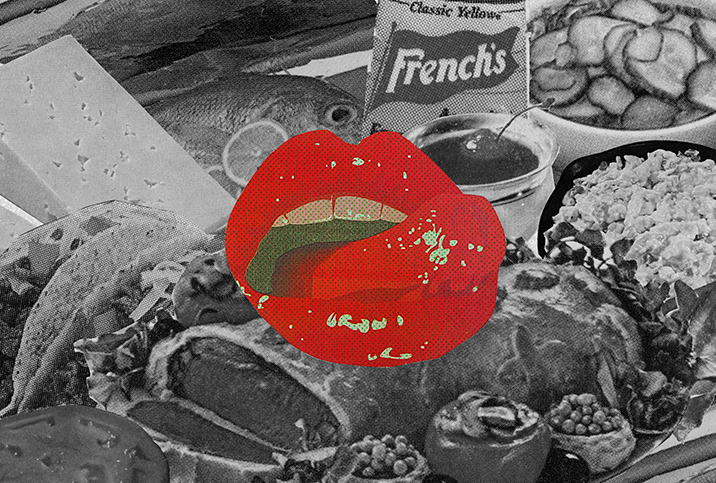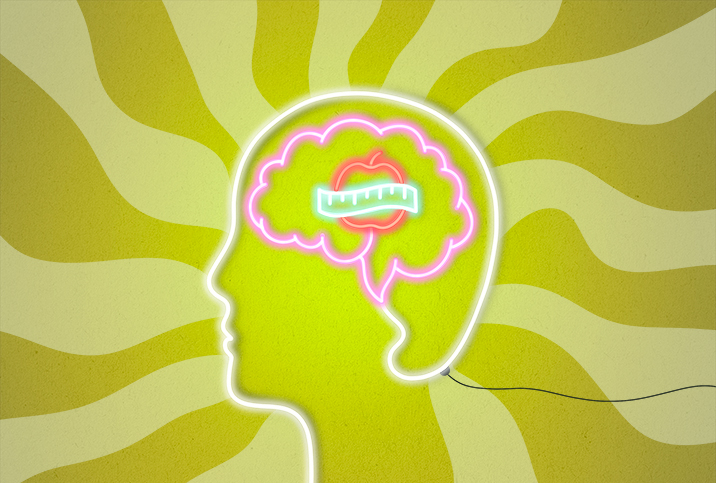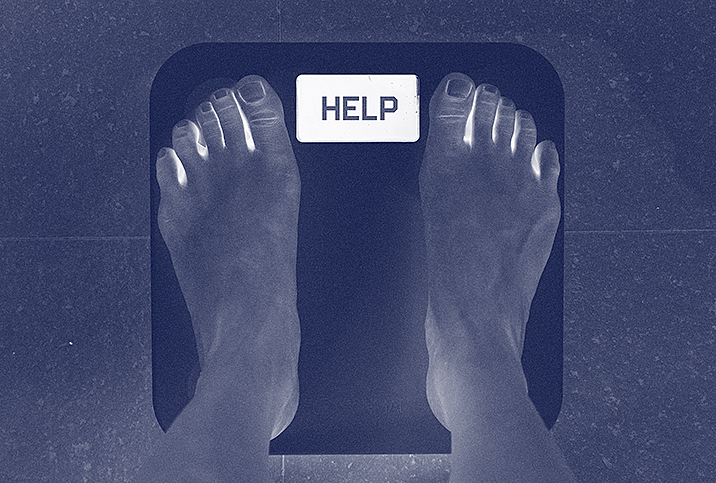How Perimenopause Can Trigger Eating Disorders—and How to Cope

Nicole Davis, a 49-year-old woman in Texas, has a family history of eating disorders, so she's no stranger to their effects. However, when she began to struggle herself, she didn't totally expect what was coming. "I'm not surprised that I, too, eventually struggled with it, but was surprised at how quickly and strongly it took over and that it happened in my 40s," she said.
Perimenopause, or the stage before menopause in which the body produces less estrogen and experiences irregular periods, played a role in Davis' bulimia. As acne and negative body image thoughts popped up, so did her eating disorder.
"I think any change in hormone levels wreaks havoc on your body," she said.
When we think of eating disorders and see movie and TV characters with them—such as Emma in "Degrassi" and Ellen in "To the Bone"—we see young people. But eating disorders don't discriminate; anyone can have one, regardless of age, gender, size, race or any other demographic.
A 2016 study in Maturitas presented evidence of the link between perimenopause and the development or triggering of an eating disorder. According to a 2017 study in BMC Medicine, 15.3 percent of middle-aged women meet the criteria for a lifetime eating disorder.
Hormones, life changes and chocolate—oh, my
"Perimenopause brings about a large number of changes in the body—weight shifts, energy level changes, sleep changes, hot flashes—much of which feels unpredictable and impactful," said Jillian Lampert, Ph.D., M.P.H., the chief strategy officer at Veritas Collaborative and the Emily Program, a specialty healthcare system for the treatment of eating disorders in Minnesota.
These symptoms can cause you to struggle with body image, stress and a loss of control, all of which can contribute to the development of an eating disorder. Plus, in middle age, you're probably going through a number of life changes, which can exacerbate a disorder.
"Perimenopause is also [a] time filled with more stressors, [such as] career stress, aging parents, kids going away, divorces…So that is certainly another potential trigger for disordered eating," said Emily Hu, M.D., an OB-GYN and the director of clinical care at Evernow in San Francisco.
'Perimenopause brings about a large number of changes in the body—weight shifts, energy level changes,sleep changes, hot flashes—much of which feels unpredictable and impactful.'
"The combination of transitions, both physical and emotional, plus the incredibly strong antiaging social messaging, can leave people going through perimenopause [feeling] less than and left behind, with a disruption in their relationship with their bodies and eating," Lampert explained.
You may crave sweets such as brownies, candy, ice cream and cookies more often, too.
"Some [people] often find that hormonal changes cause cravings, [such as] typical PMS cravings, which can be more pronounced in perimenopause," Hu said.
When diet culture's loud voice says those foods make you a "bad person"—which is far from true—you may feel the need to restrict your eating or burn off calories, which can be signs of an eating disorder.
Why it's crucial to look for these warning signs
Here are a few signs that you may have an eating disorder:
- Intense fear of weight gain
- Distorted perception of your body's size
- Exercising excessively
- Self-induced vomiting, or using diuretics or laxatives in hopes of avoiding weight gain
- Eating more than is considered "normal" quickly, while feeling out of control and ashamed
- Avoiding eating around other people
- Eating after you're uncomfortably full
- Restricting how much or what kind of food you eat
It's important to note that "other specified feeding or eating disorder" (OSFED) is the most common eating disorder in people in their 40s and 50s, according to a 2017 study in Current Opinion in Psychiatry. Basically, OSFED is a catch-all diagnosis for people who show symptoms but don't meet the strict (and often arbitrary) criteria of another eating disorder. It's just as serious.
What's especially scary is there's a thin line between dieting and a full-blown eating disorder. Dieting is the biggest predictor of anorexia, according to a 2016 study in Psychiatry Research. Eating disorders—which 28.8 million Americans will have in their lifetime—are dangerous. They can lead to constipation, a ruptured stomach, heart issues, a low sex drive and more. Eating disorders are the second-deadliest mental illness, and the medical complications are more serious in older populations.
Handling perimenopause stressors
Perimenopause can be an emotional and triggering experience, so it's understandable that people turn to disordered eating behaviors to cope. But there are other options more likely to lead to long-term happiness and health.
For instance, you can talk to your doctor about medications.
"Hormonal medications, [such as] birth control or hormonal therapy, help to control menstrual cycles and hormonal fluctuations along with typical symptoms like hot flashes and night sweats," Hu said.
You can take psychiatric medicines, such as antidepressants, to help with mental health-related symptoms.
Hu also recommended healthy behaviors such as regular exercise, good sleep hygiene and a well-balanced diet. Lampert suggested mindful eating practices and moving your body in an enjoyable way (think: dancing or yoga).
Spending time with loved ones can be a monumental benefit.
"Connect with friends, family and others," Lampert added. "Stay involved and connected as you transition through the physical and emotional changes you're going through…Reach out to others to talk about your feelings and get support."
Davis encouraged people to not be afraid to seek professional treatment if it's affordable to them.
"It was hard to share with my close friends what was going on, because eating disorders are typically associated with younger females and it was a little uncomfortable saying, 'Hey, I'm 48 and bulimic,'" she said.
But she came to realize how common it is for people of all ages to struggle and how vital it is to get help.
"Finding a therapist who is specially trained in eating disorders is especially important," she said. "I recognize how blessed I am to have access to a treatment team that has helped me immensely."


















